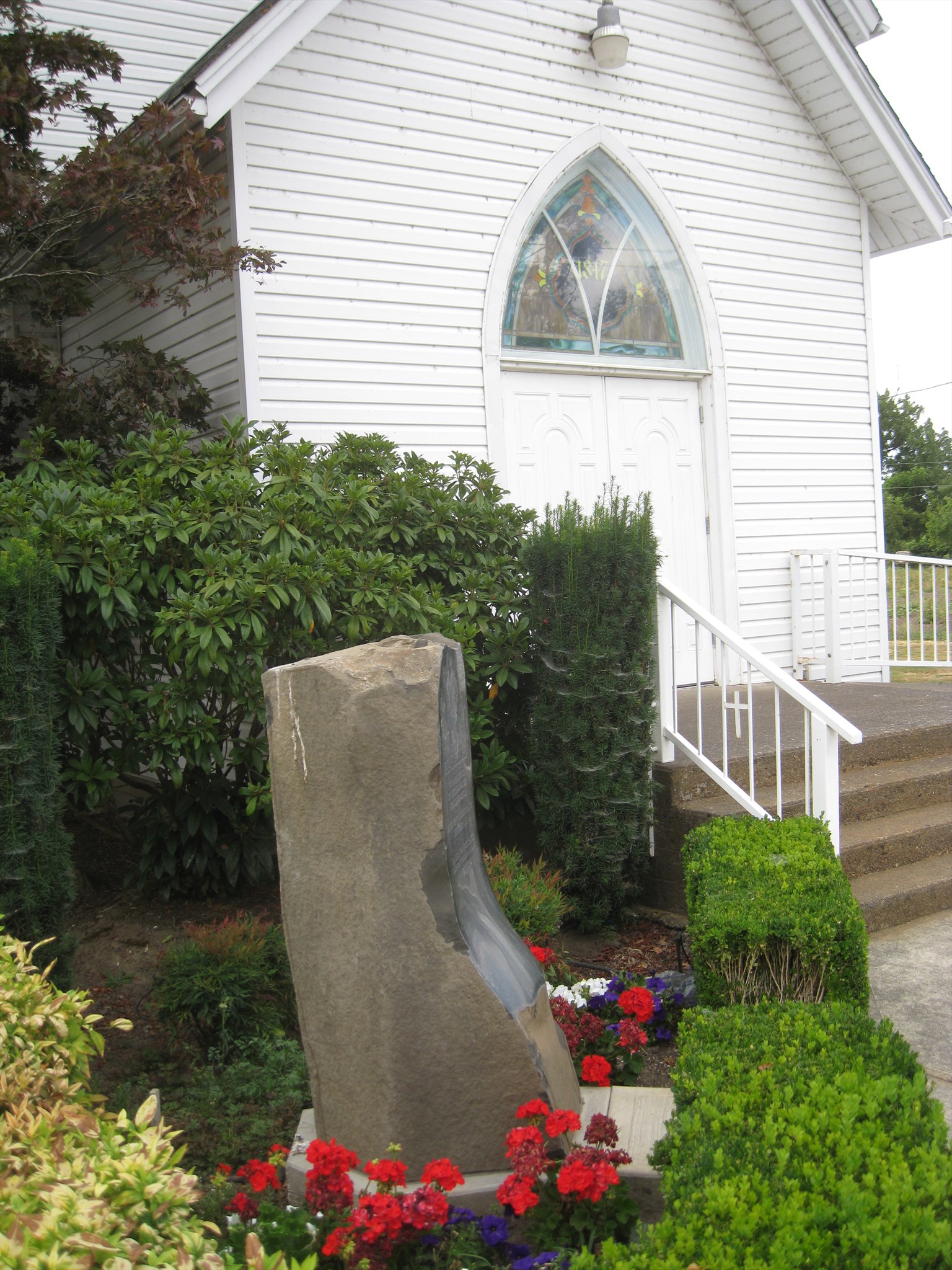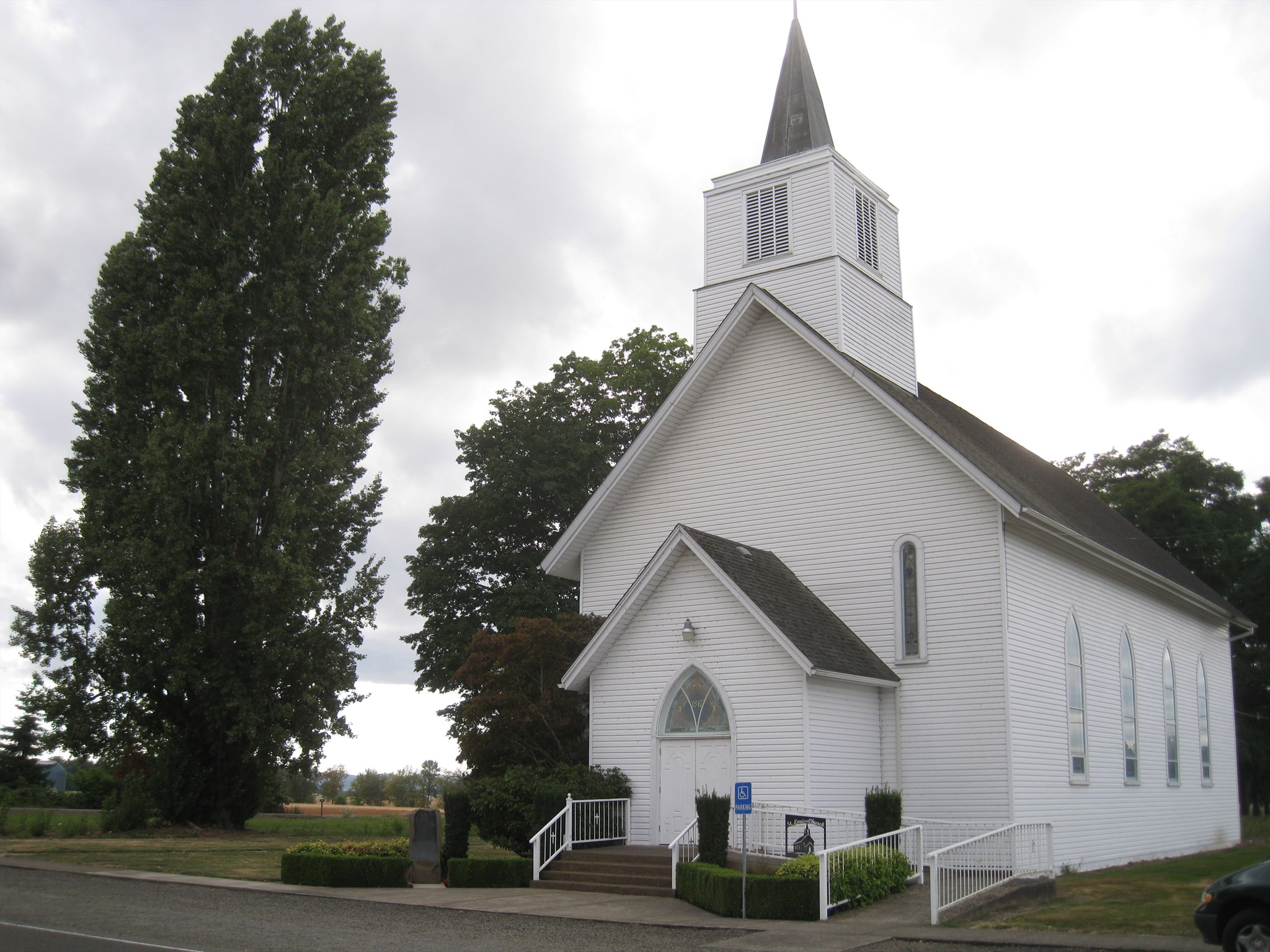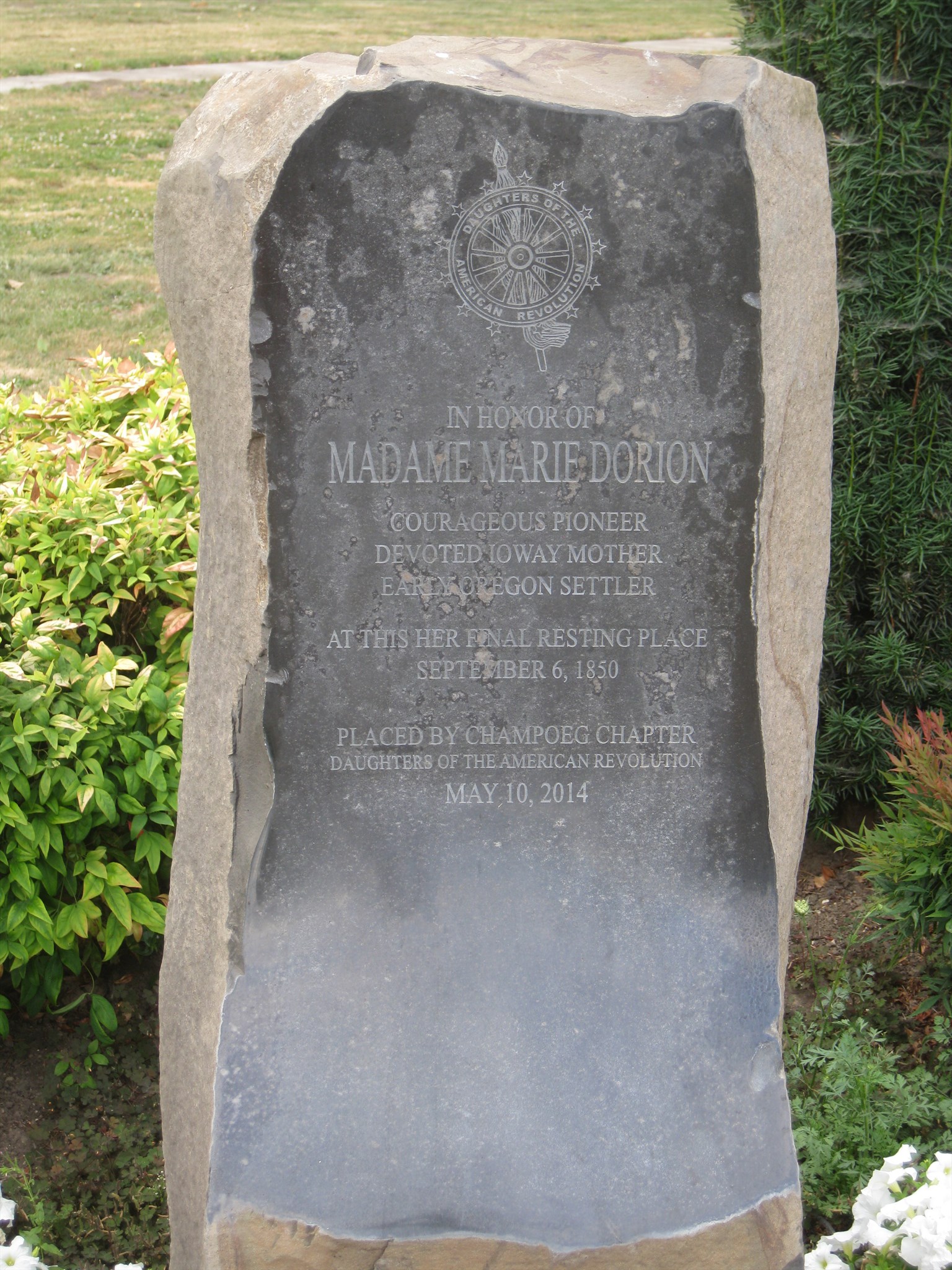This historic marker, located in front of the St. Louis Church, pays tribute to Marie Dorion, an American Indian woman who served as a guide and translator for the Astor Expedition to the Oregon Country. Marie ultimately settled here in St. Louis, remarried and lived here until her death in 1850.
This marker is located just a few feet north of a  much older historic marker. The new marker suggests this is a burial site; a notable local mystery is connected with her remains. Upon Dorian's death in 1850, she was buried inside the original St. Louis church. When that church was burned in 1880, her remains were forgotten and their exact whereabouts are no longer known. The current church building was erected in 1880 and this marker was placed here in the belief that her remains are, in fact, buried at or near this location.
much older historic marker. The new marker suggests this is a burial site; a notable local mystery is connected with her remains. Upon Dorian's death in 1850, she was buried inside the original St. Louis church. When that church was burned in 1880, her remains were forgotten and their exact whereabouts are no longer known. The current church building was erected in 1880 and this marker was placed here in the belief that her remains are, in fact, buried at or near this location.
The text of the marker reads:
| IN HONOR OFMADAME MARIE DORION COURAGEOUS PIONEER
DEVOTED IOWAY MOTHER
EARLY OREGON SETTLERAT THIS HER FINAL RESTING PLACE
SEPTEMBER 6, 1850 PLACED BY CHAMPOEG CHAPTER
DAUGHTERS OF THE AMERICAN REVOLUTION
MAY 10, 2014 |
Additional History:
Born about 1786, she was an Iowan Indian who as a teenager married Pierre Dorion, a French Canadian. Like Sacagawea six years earlier, she served as an interpreter to help guide a party of white explorers to the northwest, although her journey was longer and the difficulties encountered were more difficult. She is especially remembered for an act of heroism during the journey:
"In the cold of January 1814, she took a horse and her children and set off for her husband's camp. After three days of fighting through mountainous snow, she reached the campsite – only to find that her husband was dead. Giles LeClerc, who was badly wounded, told her that the three of them had been attacked that morning while working their traps. Pierre and Jacob Reznor did not survive.
Marie put Giles onto her horse with the two boys and began the frigid three-day journey to the main campsite – but had to stop when Giles’ condition worsened. Although she desperately tried to save him, he died. More horror greeted her back at the main camp: all the men there had been murdered, scalped, and dismembered. She was alone in the wildness with her little sons.
Gathering some food supplies, she loaded the boys onto the horse and headed west, away from enemy territory. For three months, Dorion and her children crossed deep snow in the Blue Mountains of what now is eastern Oregon and Washington. When they were near starvation, she killed and butchered her horse. The smoked meat kept the little family alive, while she used the horse’s hide and cedar boughs as shelter. When it appeared that spring had come, she and her sons again moved west – only to be caught by another blizzard. Finally, they arrived at the Columbia River and found refuge amongst the Walla Walla tribe. She and the little children had walked some 250 miles." -Source: Young and Brave: Girls Changing History
Click a photo to enlarge



Visit Instructions:
Include your thoughts and observations pertaining to this location and your visit. Provide any additional history that you are aware of that pertains to this location. If the marker commemorates a historic building tell us what it is used for now or share with us the circumstances of an earlier visit to bring this locations history to life.
Please upload a favorite photograph you took of the waymark. Although visiting this waymark in person is the only thing required of you to receive credit for your visit, taking the time to add this information is greatly appreciated.
Be creative.